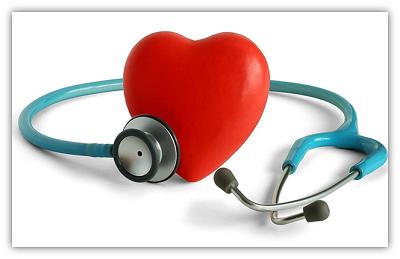Healing
Healing

I read once (and cannot now remember where!) that in rabbinic tradition it is said that when Adam ate the forbidden fruit in the Garden of Eden, his head hurt. That would make it the first headache of history! The idea in this story contains a grain of truth, namely, that sinful rebellion has brought in the state of death, both spiritual and physical. The effects of sin are felt-throughout creation, causing it to groan and suffer (Rom. 8:18ff). Human beings also experience the sad and painful results of Adam's (and our own) sin. Because people are complex creatures that God made — the spiritual, physical, mental, emotional elements all present — it is no wonder that the effects of sin are felt in every part of our being, some parts feeling it more than others.
It is an interesting fact (some may find it curious) that one of the tasks assigned to the priests was "community health." Leviticus 13 and 14 describe the ritual procedures to be followed when anyone developed a skin rash or blemish. He was to present himself to the priest for physical inspection so that the appropriate ritual of cleansing might be followed. The term used there is often translated as leprosy, although the word could cover the description of any number of skin disorders. But more than that, if clothing or houses developed mildew (fabric or building "leprosy"), those things too fell under the eyes of the priest for diagnosis. The priests' duties embraced the whole area of presenting God's people without spot or blemish, without flaw or rash, in body and soul before the living and holy God.
Since disease and death entered the world because of sin, it follows then that Christ's work of salvation should include the element of healing. This is already anticipated in the Old Testament. God rested after His six days of creation "and was refreshed" (Exodus 31:17). Of course, God is eternal Spirit, who never wearies in all that He does. He never needs to sleep or slumber. Yet if it can be said that almighty God is refreshed on the Sabbath day, how much more should man, a creature of dust and subject to all manner of weakness, also refresh himself on the festive day of rest. The Sabbath was made for man: in ceasing from all work, we have freedom to worship God but also to become rested and thus strengthened.
The Exodus event was an event of physical liberation from slavery. But Israel grumbled in the wilderness of Marah ("bitterness") when the water could not be drunk. After the water is sweetened, the LORD calls upon Israel to keep His commandments so that He might never put on Israel the diseases that He had put on the Egyptians. He says, "I, the LORD, am your healer" (Exodus 15:26). He promises to heal all our diseases (cf. Psalm 103:3).

Divine miracles are worked in both the Old and the New Testament to accomplish healing. Some of these miracles use physical means, while others do not use any physical means at all. Some miracles are accomplished by speaking the word, a word that the LORD empowers to accomplish the restoration of body and soul. In such miracles of healing in the Bible, we are given both an insight into the marvels of the age to come as well as the experience of tasting the powers of that same age.
Therefore, part of Christ's priestly office is to conquer sin through His sacrifice and to bring the effects of that victory to every element of our lives. His healing of people in the Gospels is a sign that He is indeed the One sent from God. In John 9 a beggar blind from birth is healed to show forth the glory of God. The question of "who sinned?" is set aside so that God might be glorified and Christ's role in full salvation given center-stage. Furthermore, whereas Old Testament priests could only diagnose and prescribe a course of ritual cleansing, Christ is a far superior Priest who has the actual power of God to effect the healing of the blind, the lame, the deaf, the mute, and the leprous.
Scripture, however, does not promise that everything defective and broken in our lives will be fully restored and healed in this life. Paul's "thorn in the flesh" (whatever that may have been is, immaterial for our discussion at this point) remained even after he offered earnest prayer about it. God's power is made evident in our weakness (see 2 Cor. 12:7-10). Our diseases may tempt us to discouragement and even bitterness at times, but God's Word directs us to faith and prayer (cf. James 5:13ff).
Nevertheless, since all of the effects of sin must be overcome in Christ's saving work, all Christians may have this certain hope, namely, that their own weak and lowly bodies will someday be made like Christ's glorious body (Phil. 3:21). Thus we see how union with Christ is a vital (i.e., essential to all of life) union, and from Him we draw every possible comfort and hope. Christianity that is fully Biblical shows itself completely relevant in that both body and soul (not the "soul" alone) belong to our faithful Savior, Jesus Christ (see Heidelberg Catechism, LD 1).

Add new comment